Having proper campervan insurance is extremely important, but the process can be really confusing. We’re sharing everything you need to know about getting insurance for a self-build van conversion (+ some seldom talked about tips!) so that you can be sure you’re covered in case of an accident.
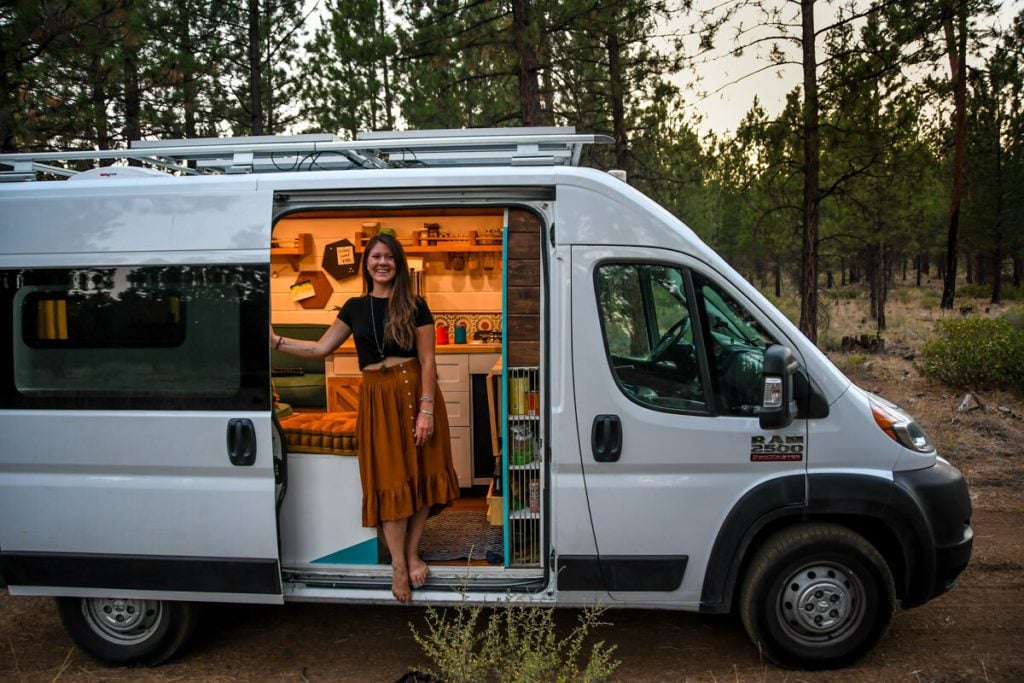
While it’s not the sexiest of topics, getting the proper campervan insurance for your self-built conversion is very important.
We’ve met enough campervan owners to know that disasters can happen while on the road. And honestly, just thinking about it makes us a little paranoid.
Not only is a campervan your mode of transportation, but it is also your home, meaning an accident or a break-in could be catastrophic.
The problem is getting self-converted campervan insurance the right way can be very confusing. We’ve been there. If you’re like us, you might be pulling out your hair and wondering how to get campervan conversion insurance…
This article is about to change that.
In this article, we’ll walk you through a step-by-step guide to getting campervan insurance so you’re covered in case of unforeseen events.
Fingers crossed you’ll never have to file a claim, but at least you’ll have peace of mind knowing that you are covered.
Let’s dive in!
Campervan Insurance Guide
- What is campervan insurance
- Types of campervan insurance
- How to insure your campervan conversion
- Campervan insurance coverages
- Additional tips for choosing campervan insurance
- Best campervan insurance companies
- Campervan insurance cost
- Campervan insurance FAQS
What is campervan insurance?
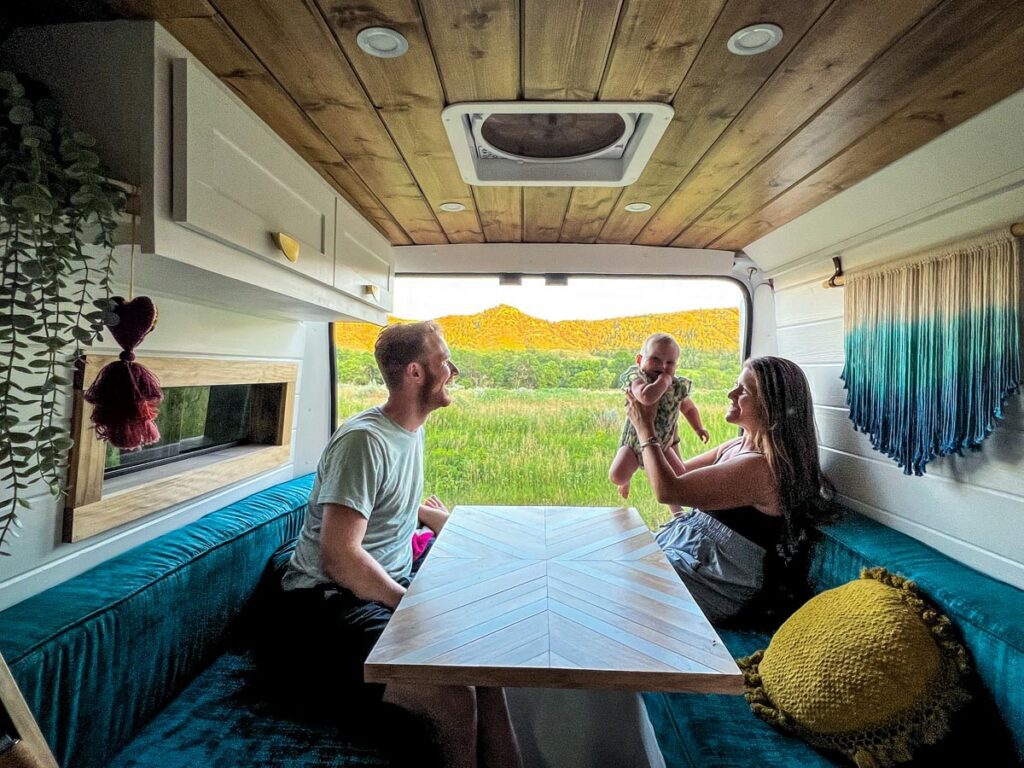
There are many different types of common insurance policies out there are you probably familiar with: home insurance, life insurance, health insurance, car insurance, renters insurance.
You’d never consider going without homeowners insurance if you owned a home. So when you consider your campervan your home on wheels, you certainly shouldn’t go without insuring it!
Camper van insurance is similar to regular auto insurance but it includes coverage for the entire camper van and not just the vehicle. This can get confusing and frustrating as insurance coverage and companies differ from state to state and depending on if you own a factory-build or a self-build campervan.
We’ll do our best to break it all down for you and give you the direction needed to get on the road safely.
Note: In this article, we are referring to insurance in the USA, as this is where we live and are most knowledgeable about.
Types of campervan insurance
The confusing thing about insurance for DIY campervans is that you’ll most likely have different types of insurance throughout the different stages of your build and when you complete the home on wheels.
You’ll want to know the difference between an automobile insurance policy and an RV Class B/ motorhome insurance policy.
Automobile Insurance Policy
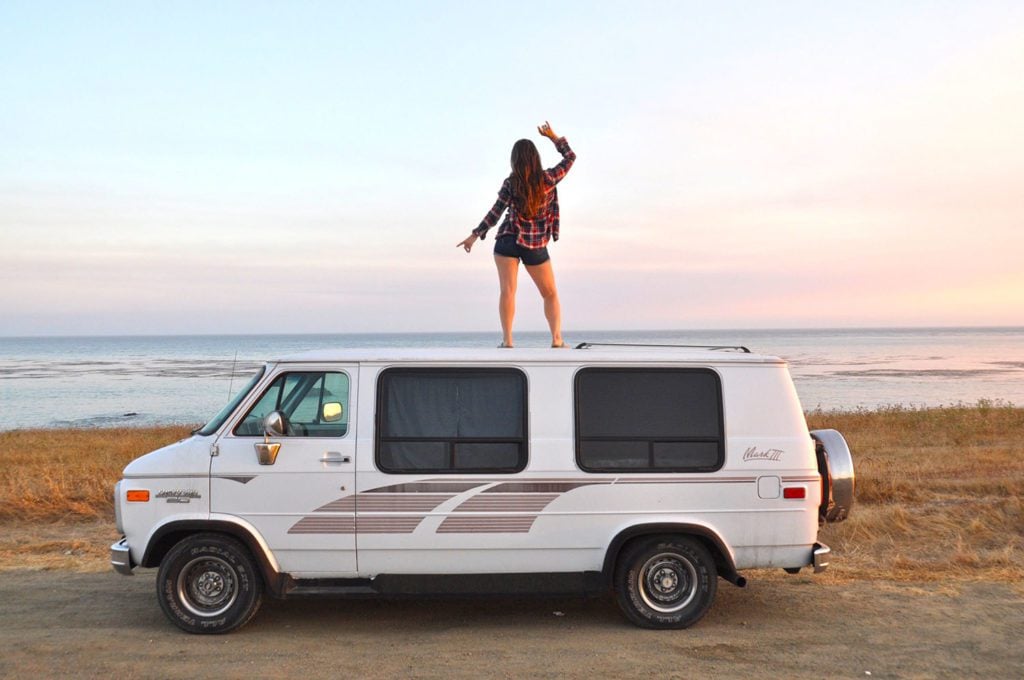
Similar to a regular car, you need to have the minimum of automobile insurance on your van. A standard auto insurance policy will only cover the vehicle itself. It will not cover a phone, computer, electronics, camera gear, clothes, or kitchen accessories.
Some homeowner policies or rental policies over items in your vehicle, so it’s good to keep that in mind.
A standard auto policy will also not cover any of the components you installed into the campervan, such as solar panels, batteries, water system, bathroom, bed, toilet, refrigerator, insulation, or lighting.
When you first buy the shell of a van (nothing inside), whether it be from a dealership or from a private owner, you most likely will get a standard auto policy to cover the vehicle.
RV Insurance Policy (Class B)
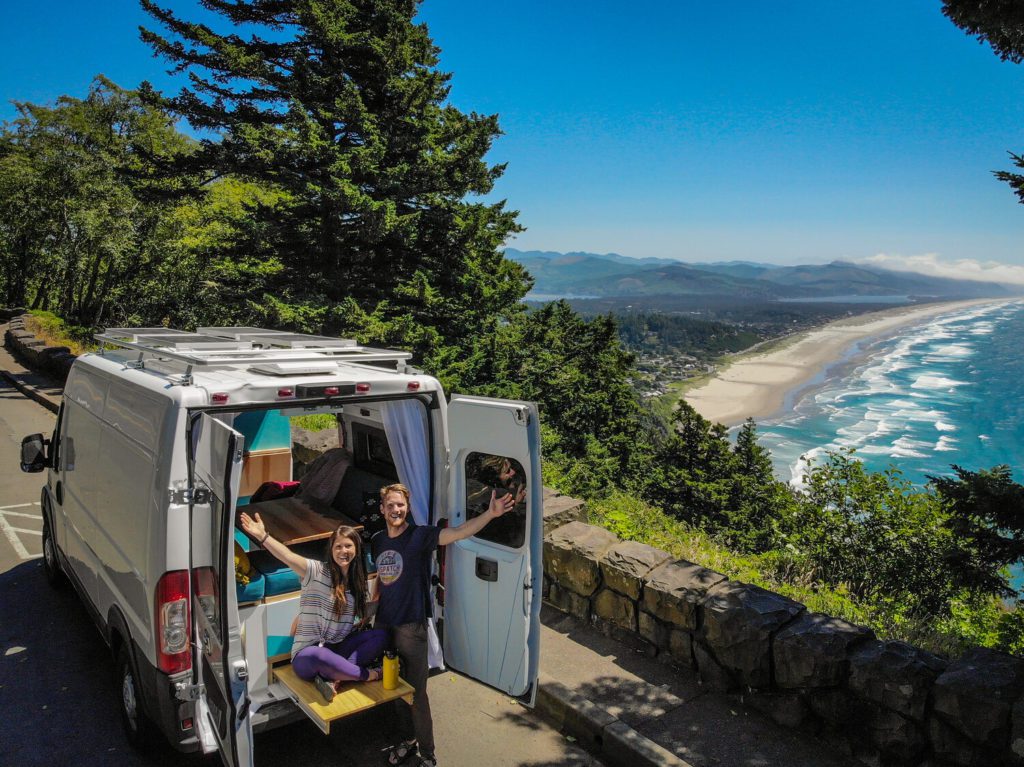
An RV insurance policy will cover the vehicle and the contents inside the campervan or RV.
Once you have completed your campervan conversion, you’ll want to get that entire thing covered by insurance. Otherwise, all those days of blood, sweat, and tears would be for nothing if your campervan were to be totaled or stolen.
To get RV insurance, your campervan typically must have one or all of the following items:
- Sleeping area
- Permanent Kitchen
- Bathroom area
- Refrigerator
However, it will depend on your state and your insurance company as to what qualifies a campervan for RV insurance.
Do I need to retitle my campervan as an RV to get insurance?
Again, it depends on your state and your insurance company whether they require your campervan conversion to be retitled as an RV.
Some vanlifers say it was easier to get campervan insurance and their premiums were less once they re-registered as an RV, but for us, we have not re-registered our campervan.
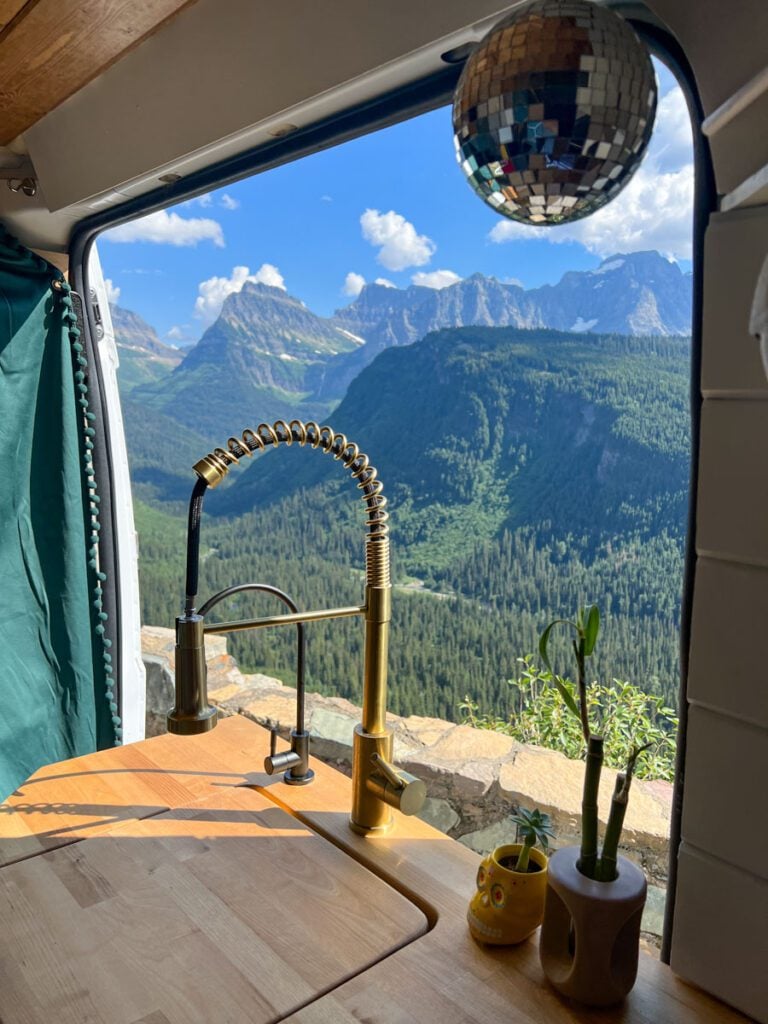
How to insure your campervan conversion
When it comes to insuring a campervan conversion, you have to remember to always document purchases and the progress of your build. Leave a paper trail for them to easily follow.
If you don’t, then it is hard for insurance companies to justify coverage and they don’t know the true value of your van.
Here’s a list of things you’ll need to get an RV insurance policy for your campervan.
1. Keep a detailed materials list
Make a spreadsheet for every purchase you make for your campervan, from solar to lumber to a foam mattress. This should include the date purchased, description, quantity, and cost.
Plus, it’s good to stick to a budget when building your van. Here are a few ways to keep your costs down when building your own DIY campervan.
2. Take photos of your build
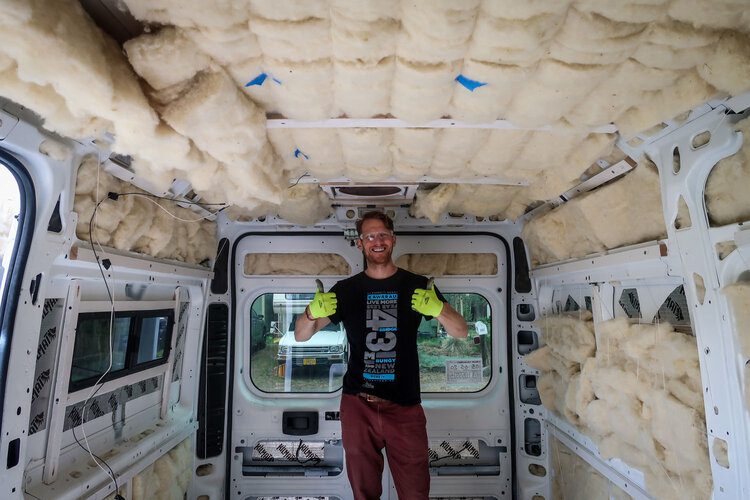
You’re going to do this anyway so might as well keep track of your major systems and components. If there is anything that gets covered up, like a water tank, be sure to take a photo of those components during your build.
Once your campervan conversion is complete, take another series of photos around your clean van. Not only can you share the pictures with your friends, but it will be good documentation for the insurance and appraisal.
3. Organize
Keep your materials list and photos in a safe place like a cloud drive so you can reference them later.
4. Get a campervan appraisal
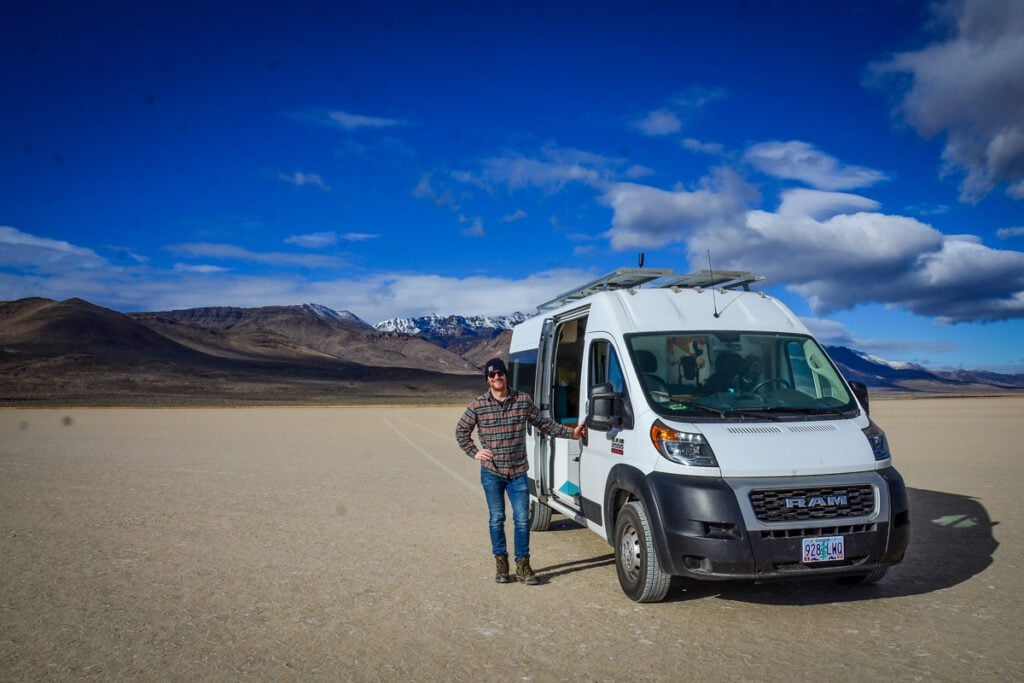
As we said before, insurance companies have a hard time assessing how much a DIY campervan conversion is because they vary so much. Because of that, they can only insure the vehicle and not the entire campervan.
A certified campervan appraisal will give you a report stating exactly what the Fair Market Value of your campervan would sell for, thus increasing your coverage if you were to get in an accident or your van was stolen.
We got a campervan appraisal and it was a lot easier than we thought. Read about our campervan appraisal experience.
If you’re ready to get an appraisal, we recommend checking out CampervanAppraisals.com, and Stacie who is a certified appraiser will get you your report within a week. If you do go with Stacie, be sure to tell her Two Wandering Soles sent you!
5. Find an insurance company to insure your campervan
It may be just as easy as contacting your insurance company to change your auto policy to an RV policy, but that might not be the case.
We had trouble at this step, so we found an Insurance Broker to negotiate on our behalf.
Keep reading for our recommendation on the best campervan companies. There’s probably one you have never heard of.
Campervan insurance coverages
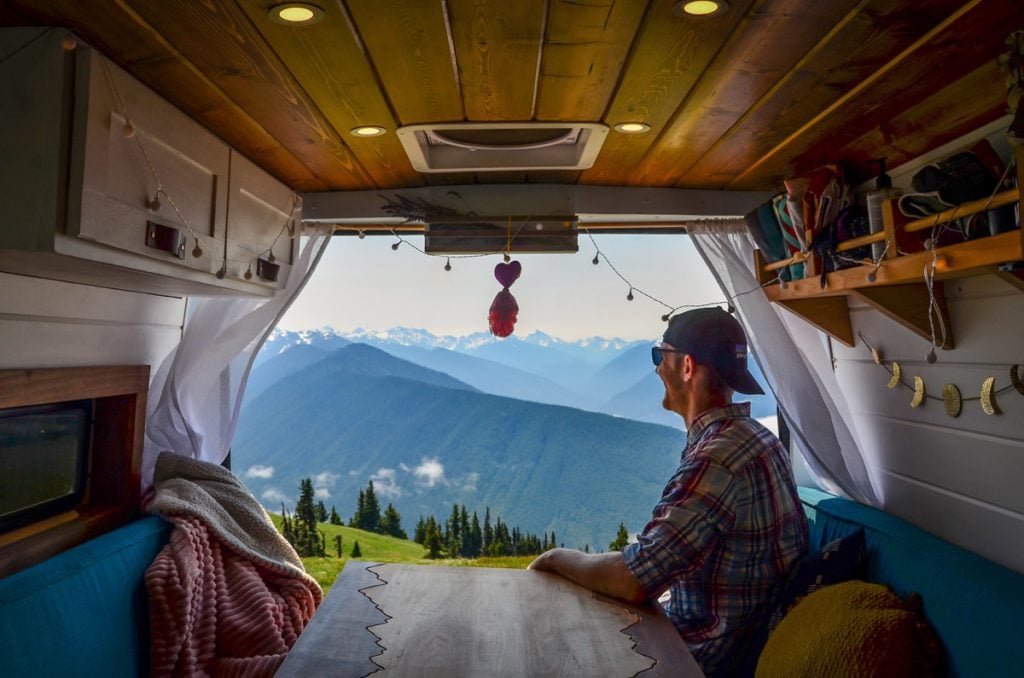
When comparing insurance policies, you might want to look into the specific coverages each of them offers. This is getting down to the nitty-gritty details, but it might be interesting to you if there is a certain coverage you are looking for.
Liability Coverage
This coverage helps protect the other person if you are in an accident and is required in every state except New Hampshire. There are two types of Liability Coverage
- Bodily Injury Liability: if a pedestrian or the other driver’s injured, this will help cover the medical bills or loss of income for that person.
- Property Damage Liability: covers the damage to someone’s property (like a car, garage door, fence, etc.) and this can help pay for those damages.
Comprehensive Coverage
Covers damage to your campervan that is non-collision related, like hail, theft, vandalism, etc.
You will want a Comprehensive Plan for your van so you know that you are fully covered! This is where the campervan appraisal is so important to exactly know how much your van is worth.
Collision Coverage
Covers damage and repairs to your campervan in a collision with another car or object, regardless of fault. You need to have comprehensive coverage before you are able to add collision coverage.
Uninsured or Underinsured Motorists
If the other driver is found to be at fault in an accident and does not have insurance or not enough insurance, this coverage can help pay for your van’s repairs or injuries.
Medical Payments Coverage (Personal Injury Protection)
This coverage can pay for medical bills if you or your passengers are injured in an accident.
Roadside Assistance
If your campervan is broken down and won’t move, roadside assistance will help with jumpstarts, towing, fuel delivery, and more. Some even help with tire changes. Ask your insurance if
We always carry a self-jump starter kit in our van just in case we are not around anyone else and our van dies.
Additional tips for choosing campervan insurance
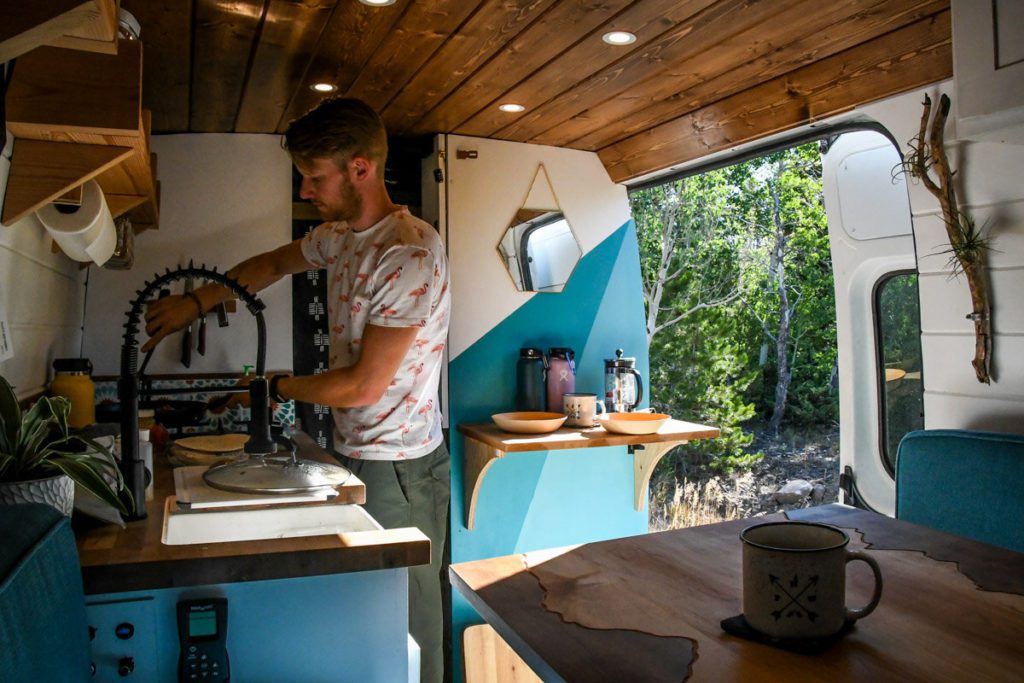
Here are a few additional things to think about when choosing a campervan insurance policy.
Part-Time or Full-Time Coverage
Like some van owners, if you plan to be in our van for less than 6 months out of the year, you would be considered Part-Time or have a Vacation Liability coverage.
Full-time liability coverage is for campervan owners who are in their van more than 6 months out of the year and most likely have a long-term parking spot at the campground or park. A full-time policy has additional liability and medical payments coverage in case someone gets injured nearby your van.
International Travel
Do you plan to head down to Baja, Mexico for the winter? Or are you looking to travel north to Banff or Whistler?
Make sure your policy includes international travel coverage. For instance, when we went to Montreal, Canada, we had a hard time driving on the snowy roads near our Airbnb and kinda got stuck.
We called our insurance and since we were in Canada, roadside assistance would not be covered. Luckily, those kind Canadians lived up to their reputations and helped us out until a plow came by, and we were on our merry way.
Renting your campervan out
Outdoorsy is a company that helps you rent out your van when you are not using it. Kind of like Airbnb, but for campervans and RVs.
If you choose to do this, you’ll need additional insurance to cover the renters and most big-name insurance companies do not like this.
As we mentioned before, Roamly was created by Outdoorsy so that van owners could be insured when they rent out their own vans.
Best campervan insurance companies
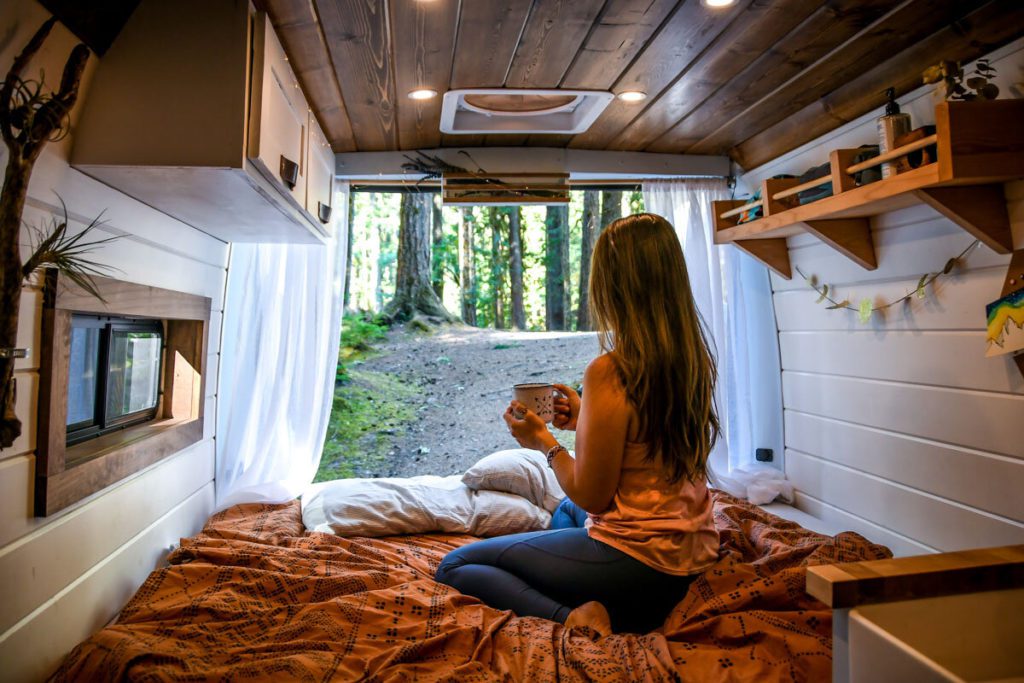
When you think of car insurance you think of the big names like GEICO, Progressive, State Farm, Allstate, etc.
Well, actually only a few of them are open to insuring a campervan conversion. The two that we know from experience are Progressive and State Farm.
However, we live in Oregon and State Farm does not insure campervans here, but Progressive does.
We know vanlifers in Colorado and Texas and they were only able to get insurance from State Farm and not Progressive.
Check around with the different insurance companies in your area to see if they can cover your campervan conversion.
With all that said, you will still need to get a campervan appraisal in order to get covered for the full amount of what your campervan is worth on your RV insurance policy. That is why we recommend getting a campervan appraisal and sending that to your insurance company to increase your coverage.
Roamly
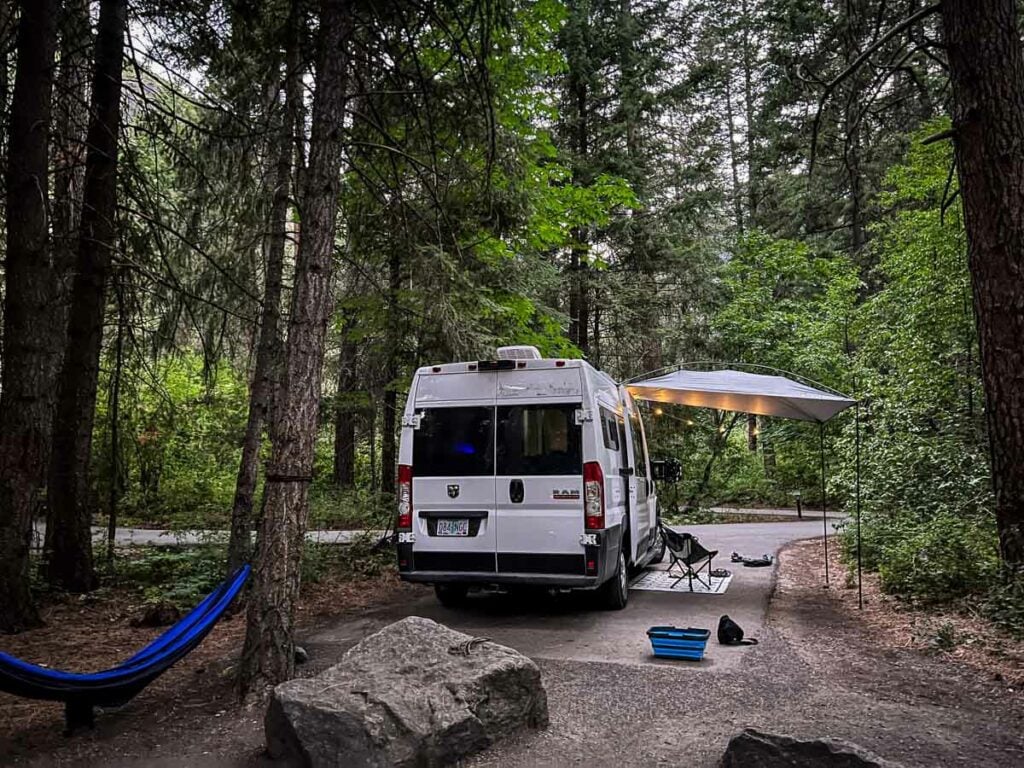
If you’re having trouble getting insurance from big-name insurance companies, there is another option. Roamly is a new (as of 2021) insurance company made specifically for campervans and RVs.
Roamly insures campervans that both are professionally built as well as self-built campervans. They are also in all 50 states so you know you can find coverage.
Roamly also claims that they can save van owners up to 25% on RV insurance compared to other insurance companies, so I’d say it’s worth getting a 60-second quote.
To get a policy you simply need to have a sleeping area and at least of the following:
- A Stovetop
- Bathroom (does not need to be permanent plumbing)
- Refrigerator
Roamly also offers policies where you can rent your campervan, when you are not using it, on Outdoorsy, which is actually their parent company.
Campervan insurance cost
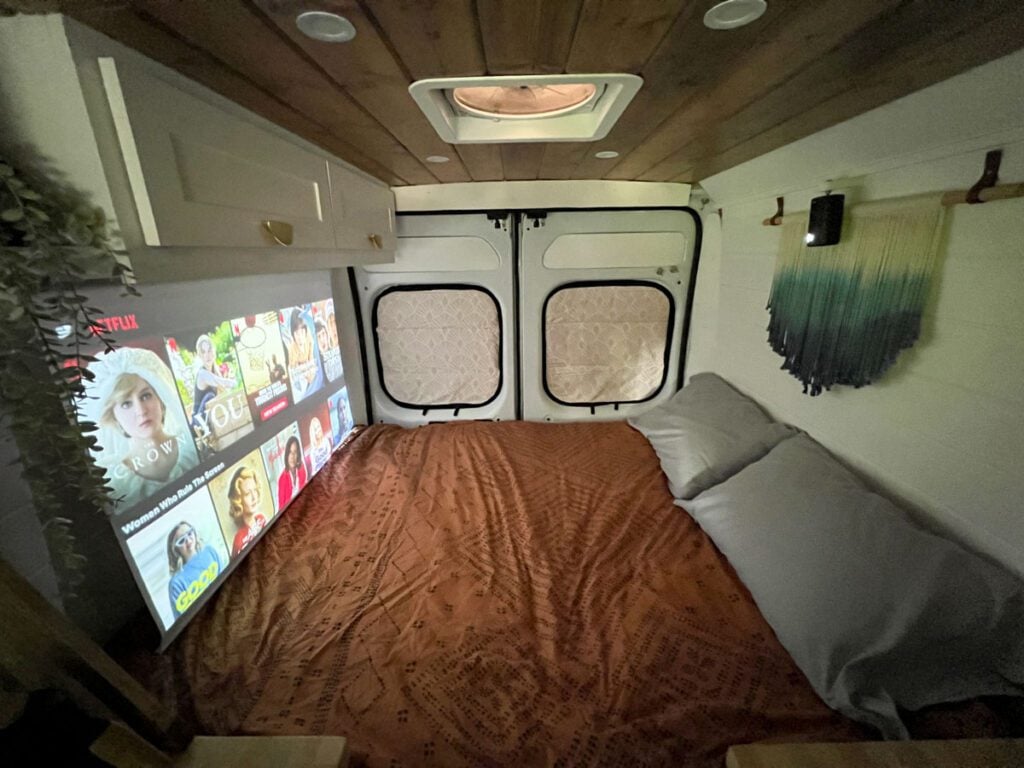
When it comes to the cost of campervan insurance, it can vary depending on your location, insurance company, and the type of van.
But just as a reference here’s the cost of our campervan insurance for our 2021 ProMaster 3500 that appraised at over $120,000:
- Progressive – $764/year – this is the insurance we have
- State Farm – $2,902/year – this is a quote for their “Standard Policy”
- Roamly – $831/year – this is a quote for their “Extra Policy”
We got our Progressive policy through a local insurance broker and they were able to fine-tune the coverages and negotiate for us with the insurance company. This is why we highly recommend getting an insurance broker that knows how to properly insure a campervan.
Campervan insurance FAQs
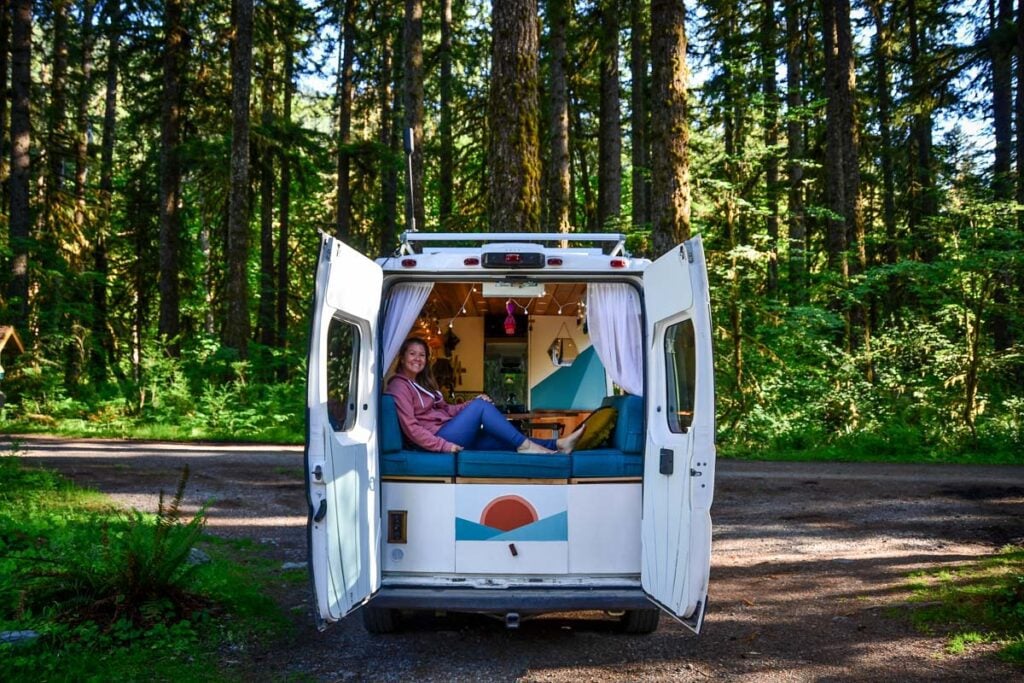
We’ve done our best to cover the basics of campervan insurance in this detailed article, however, we know there are probably still some unanswered questions. Below is a quick overview of some of the most frequently asked questions on the topic of campervan insurance.
What insurance do I need for a campervan?
Campervan insurance is similar to regular auto insurance but it includes coverage for the entire campervan and not just the vehicle.
This can get confusing and frustrating as insurance coverage and companies differ from state to state and depending on if you own a factory-build or a self-build campervan.
When insuring a campervan, it’s essential to consider several types of insurance coverage to protect your vehicle and yourself. Here are some insurance options you may need for your campervan:
- Liability insurance: Liability coverage is crucial as it protects you financially if you are responsible for injuring someone or damaging their property in an accident. It typically includes bodily injury liability and property damage liability.
- Comprehensive insurance: This type of insurance covers damages to your campervan caused by accidents, theft, vandalism, weather-related incidents, and other non-collision events.
- Collision insurance: Collision coverage pays for damages to your campervan resulting from collisions with other vehicles or objects, regardless of fault.
- Uninsured/underinsured motorist coverage: This coverage protects you if you’re in an accident with a driver who doesn’t have insurance or enough insurance to cover the damages.
- Personal Injury Protection (PIP): PIP coverage can help cover medical expenses for you and your passengers if you’re injured in an accident, regardless of fault.
- Roadside Assistance/Towing Coverage: This optional coverage can provide assistance if your campervan breaks down or needs towing.
Before purchasing insurance for your campervan, consider factors such as the value of your vehicle, how often you use it, where you travel, and your budget. It’s also recommended to compare quotes from multiple insurance providers to find the best coverage at a competitive price.
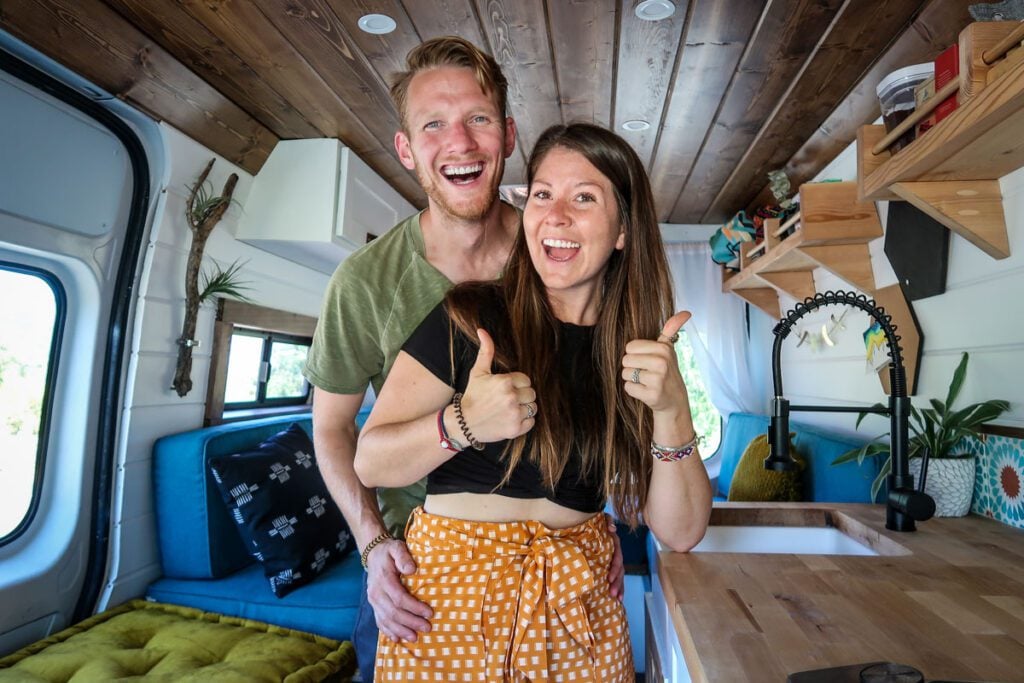
Are campers expensive to insure?
Overall, while campers can be more expensive to insure than regular vehicles due to their size and features, insurance costs can vary significantly based on individual circumstances.
Who has the cheapest camper insurance?
When we compared the quotes from multiple insurance companies for our 2021 ProMaster 3500 that appraised at over $120,000, we found Progressive had the cheapest rate for our ideal coverage.
See the comparison below:
- Progressive – $764/year – this is the insurance we have
- State Farm – $2,902/year – this is a quote for their “Standard Policy”
- Roamly – $831/year – this is a quote for their “Extra Policy”
What’s the difference between a motorhome and a campervan?
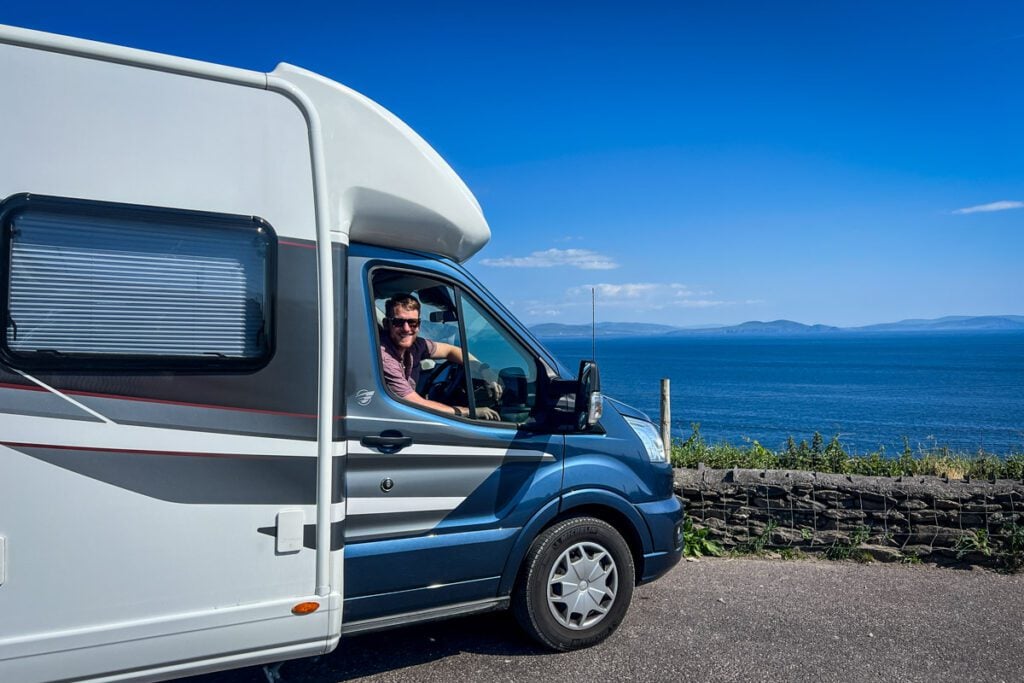
The main difference between a motorhome and a campervan when it comes to insurance lies in their size, usage, and classification by insurance companies. Here are some key distinctions:
- Size and amenities:
- Motorhome: A motorhome is a larger recreational vehicle (RV) that typically includes living accommodations such as a kitchen, bathroom, sleeping area, and sometimes slide-out sections to increase interior space when parked. Motorhomes can range from compact Class B models to spacious Class A models.
- Campervan: A campervan is a smaller vehicle that has been converted into a camper. Campervans may have basic amenities like a bed, storage space, and sometimes a small kitchen and/or bathroom, but they are generally more compact than motorhomes.
- Insurance classification:
- Insurance companies may classify motorhomes and campervans differently based on their size, amenities, and usage patterns. This classification can impact insurance premiums and coverage options.
- Motorhomes are typically classified into different classes:
- Class A: Large, luxurious motorhomes often built on commercial truck chassis.
- Class B: Compact motorhomes, also known as campervans, built on van chassis.
- Class C: Mid-sized motorhomes with a cab-over section above the driver’s cab.
- Campervans may fall under a separate category or be considered as part of the Class B motorhome category, depending on their size and features.
- Insurance considerations:
- Insurance premiums for motorhomes are often higher than those for campervans due to their larger size, higher value, and more extensive amenities.
- Motorhomes may require specialized insurance coverage, such as full-time RV insurance if they are used as primary residences.
- Campervans may be insured similarly to regular passenger vehicles or may require RV insurance policies tailored to their specific features and usage.
What is not covered by RV and campervan insurance?
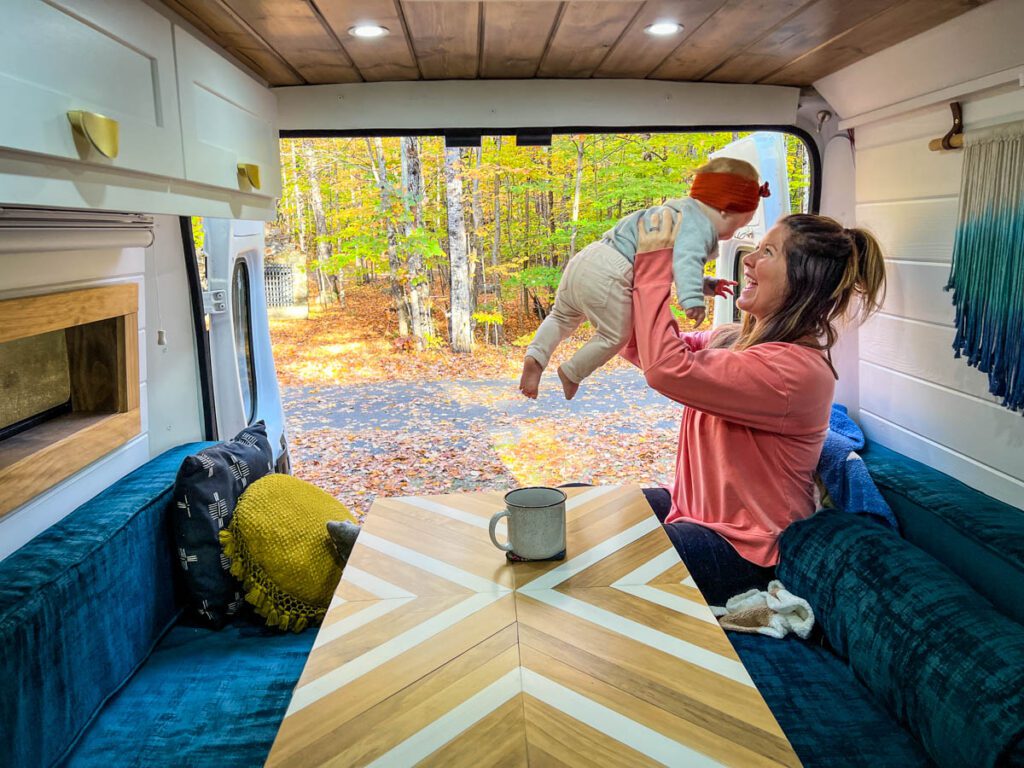
RV insurance coverage typically provides for various risks associated with owning and using a recreational vehicle. However, there are certain things that may not be covered or may require additional endorsements or policies. Here are some examples of what is typically not covered by RV insurance:
- Normal wear and tear: RV insurance does not cover regular wear and tear that occurs due to aging, use, or maintenance issues. This includes mechanical breakdowns, engine failures, and other mechanical issues that are not the result of an accident or covered event.
- Personal belongings: While some RV insurance policies may offer limited coverage for personal belongings inside the RV, it’s often not enough to cover high-value items such as jewelry, electronics, or specialized equipment. Consider purchasing separate personal property insurance or adding an endorsement to your RV policy for increased coverage.
- Unattached accessories: Accessories such as awnings, antennas, satellite dishes, and bike racks that are not permanently attached to the RV may have limited coverage under standard policies. Consider adding coverage for these items if they are valuable or frequently used.
- Intentional damage or negligence: RV and campervan insurance typically does not cover damages resulting from intentional acts, vandalism, or negligence. For example, if you intentionally damage your RV or fail to properly maintain it, resulting in damages, the insurance may not cover the costs.
- Renting or loaning out your RV or van: If you rent out or loan your RV to others, standard RV insurance may not provide coverage during those periods. You may need specialized rental insurance or a rider on your policy to cover rental or loaner situations.
Do you want to learn more about Van Life?
We have tons of articles on how to build your own DIY Campervan and what to do once you’re living the #vanlife. We have built 3 campervans so we feel we know a thing or two. Check out the articles below for more tips:
- How to find Free Camping in the USA (+Tips & Apps)
- How to get WiFi in a campervan
- Worst Parts of Vanlife
- Easy and Healthy Camping Meals
Interested in engaging with others about all things #vanlife? Join our Vanlife Facebook community!
Don’t forget to grab your FREE Vanlife Jumpstart Toolkit!
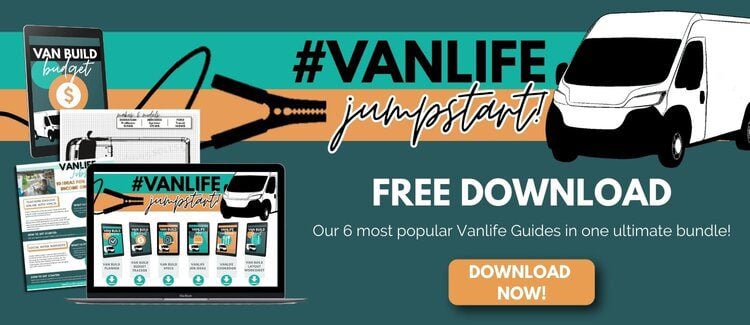
Save this article on Pinterest for later!
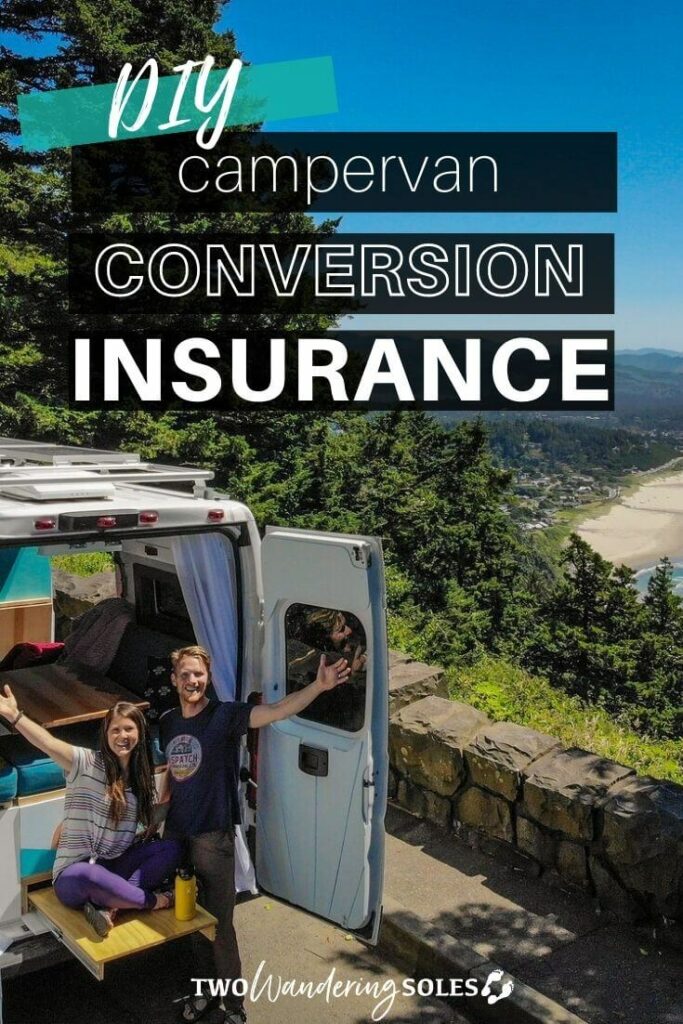
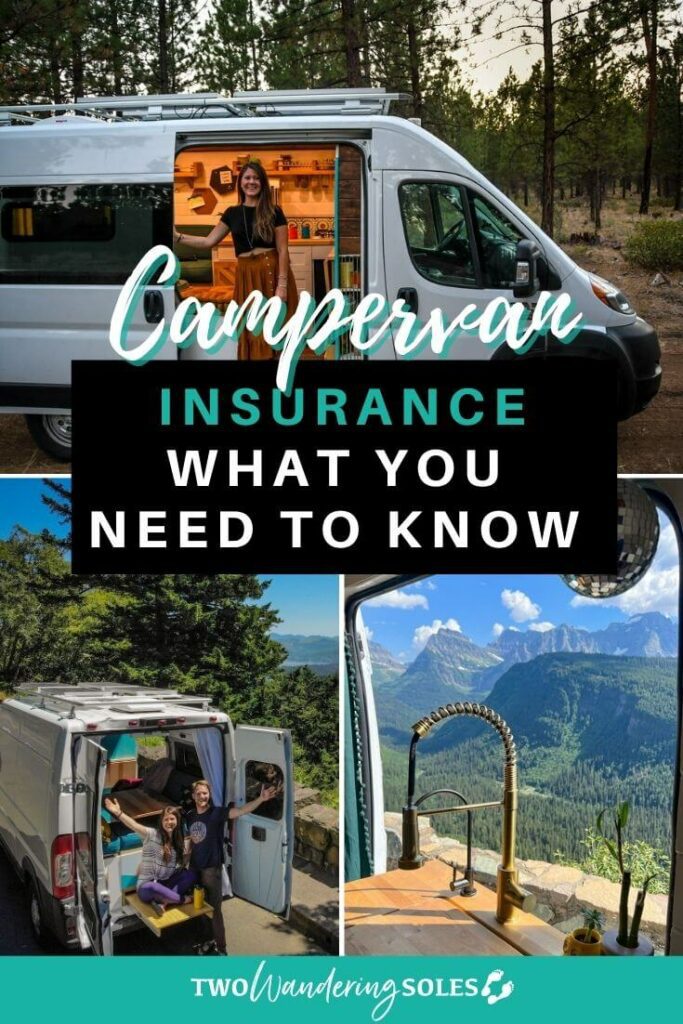
We want to hear from you!
Are you looking to get campervan insurance? Are you getting confused by all the different types of coverage? Have you tried Roamly Campervan Insurance? Post your questions or comment below and we’ll do our best to get back to you!

Ben Zweber is a former engineer‑turned‑chief navigator and behind‑the‑scenes whiz at Two Wandering Soles, where he teams up with Katie to turn big travel dreams into real adventures. With an MBA in one hand and a love for maps, puns, and good food in the other, he keeps the blog running and the journeys fun. When he’s not crafting SEO magic or tinkering with campervan builds, you’ll find him exploring new places with his family.

Thanks for sharing
We just bought a Ford Connect Transit van, it’s a 2022 with 28 miles on it. When we tried to insure it though Costco Connect, our insurance for the truck and Nissan Altima Coupe, only to find that Costco Connect doesn’t insure anything that might be used commercially. In fact, we began to panic because we thought we might not get insurance. But Progressive did, at a rate of $320 every six months.
Hey Terry, glad you got insured through Progressive. We’ve had campervan insurance policies with them in the past and have had good experiences!